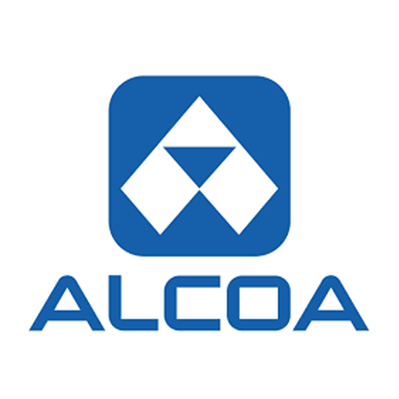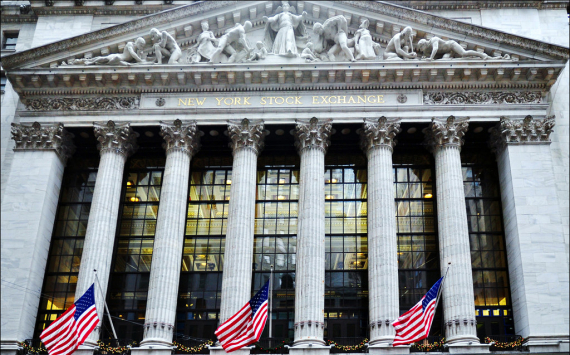Description
Alcoa Corporation is an American industrial corporation. It is the world's sixth largest producer of aluminum, with corporate headquarters in Pittsburgh, Pennsylvania. Alcoa conducts operations in 10 countries. Alcoa is a major producer of primary aluminum, fabricated aluminum, and alumina combined, through its active and growing participation in all major aspects of the industry: technology, mining, refining, smelting, fabricating, and recycling.
In May 2007, Alcoa Inc. made a US$27 billion hostile takeover bid for Alcan in an attempt to form the world's largest aluminum producer. The bid was withdrawn when Alcan announced a friendly takeover by Rio Tinto in July 2007.
On November 1, 2016, Alcoa Inc. split into two new entities: Alcoa Corporation, which is engaged in the mining and manufacture of raw aluminum, and Arconic, which processes aluminum and other metals.
After having relocated corporate operations to New York City in 2006, Alcoa moved its headquarters back to Pittsburgh effective September 1, 2017. In October 2018, Alcoa announced plans to move from Pittsburgh's North Shore to a more downtown Pittsburgh location.
History
In 1886, Charles Martin Hall, a graduate of Oberlin College, discovered the process of smelting aluminum, almost simultaneously with Paul Héroult in France. He realized that by passing an electric current through a bath of cryolite and aluminum oxide, the then semi-rare metal aluminum remained as a byproduct. This discovery, now called the Hall–Héroult process, along with the Bayer process, are the dominant processes for production of aluminum from bauxite ore.
Probably fewer than ten sites in the United States and Europe produced any aluminum at the time. In 1887, Hall made an agreement to try his process at the Electric Smelting and Aluminum Company plant in Lockport, New York, but it was not used and Hall left after one year. On Thanksgiving Day 1888, with the help of Alfred E. Hunt, he started the Pittsburgh Reduction Company with an experimental smelting plant on Smallman Street in Pittsburgh, Pennsylvania. In 1891, the company went into production in New Kensington, Pennsylvania. In 1895, a third site opened at Niagara Falls. By about 1903, after a settlement with Hall's former employer, and while its patents were in force, the company was the only legal supplier of aluminum in the United States.
By 1902 New Kensington consisted of 173,000 sq. feet on 15 acres with 276 employees and the company operated hydropower and reduction plants in Niagara Falls, NY (1895), Shawinigan Falls, Quebec (1900), mining operations in Bauxite, AR (1901) and reduction facilities in East St. Louis, IL (1902). "The Aluminum Company of America" became the firm's new name on January 1, 1907. The acronym "Alcoa" was coined in 1910, given as a name to two of the locales where major corporate facilities were located (although one of these has since been changed), and in 1999 was adopted as the official corporate name.
From 1902 until 1915 additional plants in Massena, NY (1903), Alcoa, TN (1911), Edgewater, NJ (1915), Badin, NC (1915) came online while New Kensington had 31 buildings in the complex housing six departments (tubes, sheets, rods, bar and wire, extrusion, jobbing, foil) and two subsidiaries (Aluminum Cooking Utensil Company and Aluminum Seal Company). In 1907 it created the "company town" of Pine Grove, New York, for workers outside Massena. In Baden, Alcoa, Maryville and elsewhere the company funded the construction of schools, parks, playgrounds and medical facilities.
By the end of World War I Alcoa's New Kensington facility accounted for 3,292 workers—a fifth of the local population—and covered over 1 million square feet of manufacturing space on 75 acres.
After WWI, Alcoa obtained the rights to Alfred Wilm's duralumin patent, which led to additional research into other aluminum alloys. By 1923, Alcoa's New Kensington, Pennsylvania plant was using horizontal extrusion presses, with preheated billets, for aerospace and construction applications. One of the first industrial uses was for the Navy's Shenandoah, followed ten years later with airplane applications.
In 1938, the Justice Department charged Alcoa with illegal monopolization, and demanded that the company be dissolved. The case of United States v. Alcoa was settled six years later.
In 1963, John D. Harper, a Tennessee native who had started with the company in 1925, then was hired, in 1933, as an electrical engineer, following his graduation from the University of Tennessee, and who had subsequently served as vice president and director; was named president of Alcoa, then CEO, in 1965, then chairman, in 1970, serving until his retirement from Alcoa, in 1975. Harper was also a director of Mellon Bank N.A., Goodyear Tire and Rubber Company and Procter & Gamble, and a trustee of Carnegie-Mellon University. An advocate of close associations between business and government; in 1972, Harper, with General Electric CEO Fred J. Borch was instrumental in co-founding the Business Roundtable, and served as its chairman for three years.
In 1998, Alcoa acquired Alumax in a cash and share deal for $2.8 billion. Alcoa paid $50 a share in cash for half of the shares and 0.6975 Alcoa share for each of the remaining Alumax shares. Alcoa also assumed $1 billion in debt. Alumax's assets included the Eastalco aluminum smelter in Adamstown Maryland, the Intalco aluminum smelter in Ferndale Washington, and the Kawneer brand of building construction products.
In 2000, Alcoa acquired Reynolds Metals Co. in an all-share deal for $4.5 billion. To clear anti-competition regulatory hurdles, Alcoa was required to sell Reynolds's 25% interest in a Washington smelter and all of Reynolds's alumina refineries. Reynolds owned a 56% interest in the Worsley alumina refinery in Australia, 50% interest in a refinery in Germany and 100% interest in a Texas refinery. Alcoa also planned to sell Reynolds's construction and distribution business and the company's $400 million transportation business. Alcoa sold its packaging and consumer business, formerly called Reynolds Metals, to the Rank Group for $2.7 billion in 2008.
In 2000, Alcoa also purchased Cordant Technologies Inc. for $57 a share in cash, or $2.3 billion, and also assumed $685 million of Cordant's debt for a total transaction value of $2.9 billion. Cordant's divisions included Huck Fasteners, Jacobson Mfg. Co., Continental/Midland Group, its 85% interest in Howmet International Inc., and Thiokol Corporation. In 2001, Alcoa sold Thiokol for $2.9 billion to Alliant Techsystems (ATK).
Alcoa purchased an 8% stake of Aluminium Corporation of China (Chalco) in 2001. It tried to form a strategic alliance with China's largest aluminum producer, at its Pingguo facility; however, it was unsuccessful. Alcoa sold their stake in Chalco on September 12, 2007, for around $2 billion.
In 2004, Alcoa's specialty chemicals business was sold to two private equity firms led by Rhône Group for an enterprise value of $342 million, which included the assumption of debt and other unfunded obligations.[28] Rhône Group then changed the name to Almatis, Inc.
In 2005 Alcoa acquired two major production facilities in Russia, at Samara and Belaya Kalitva.
In 2005, Alcoa began construction in Iceland on Alcoa Fjarðaál, a state-of-the-art aluminum smelter and the company's first greenfield smelter in more than 20 years, albeit under heavy criticism by local and international NGOs related to a controversial dam project exclusively dedicated to supplying electricity to this smelter. Also, Alcoa has completed or is undergoing primary aluminum expansion projects in Brazil, Jamaica, and Pinjarra, Western Australia.
In 2006, Alcoa relocated its top executives from Pittsburgh to New York City. Although the company's principal office was relocated to New York City, the company's operational headquarters were still located at its Corporate Center in Pittsburgh. Alcoa employed approximately 2,000 people at its Corporate Center in Pittsburgh and 60 at its principal office in New York.
Alcoa was named one of the top three most sustainable corporations in the world at the World Economic Forum in Davos, Switzerland.
On May 8, 2008, Klaus Kleinfeld was appointed CEO of Alcoa, succeeding Alain Belda. On April 23, 2010, Alcoa's board of directors selected Kleinfeld to the office of chairman, following Belda's planned retirement.
On July 16, 2012, Alcoa announced that it would take over full ownership and operation of Evermore Recycling and make it part of Alcoa's Global Packaging group. Evermore Recycling is a leader in used beverage can recycling, purchasing more recycled cans than any other group worldwide.
In June 2013, Alcoa announced it would permanently close its Fusina primary aluminum smelter in Venice, Italy, where production had been curtailed since June 2010.
On January 9, 2014, Alcoa reached a settlement with the U.S. Securities and Exchange Commission and the U.S. Department of Justice over charges of bribing Bahraini officials. Under the terms of the settlement they will pay the SEC $175 million to settle the charges. To settle the criminal claims with the DoJ, Alcoa World Alumina (AWA, a company within Alcoa World Alumina and Chemicals) is pleading guilty to one count of violating the anti-bribery provisions of the Foreign Corrupt Practices Act (FCPA). AWA will pay the DoJ $223 million in five equal installments over the next four years, bringing the company's total bill for the scandal to $384 million.
In June 2016, Alcoa Inc. announced plans to split itself into two companies. Alcoa Inc would be renamed as Arconic and would take over the business of designing and building processed metal parts, primarily for the automotive and aerospace industries. A new company, Alcoa Corporation, would be set up and spun out of Alcoa Inc. and retain the Alcoa name. Alcoa Corp. would continue the business of mining, smelting, and refining of raw aluminum. The split was completed on November 1, 2016.
In April 2017, Alcoa announced that it would relocate its corporate headquarters back to Pittsburgh as part of a general consolidation of administrative facilities around the world.
























